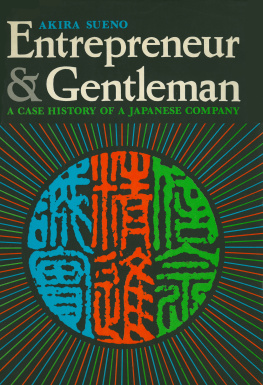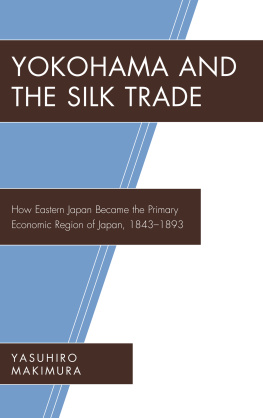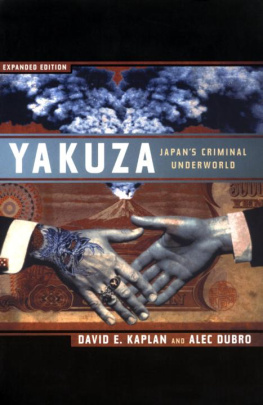Karel van Wolferen - The Enigma of Japanese Power
Here you can read online Karel van Wolferen - The Enigma of Japanese Power full text of the book (entire story) in english for free. Download pdf and epub, get meaning, cover and reviews about this ebook. year: 1989, publisher: Alfred A. Knopf, genre: Politics. Description of the work, (preface) as well as reviews are available. Best literature library LitArk.com created for fans of good reading and offers a wide selection of genres:
Romance novel
Science fiction
Adventure
Detective
Science
History
Home and family
Prose
Art
Politics
Computer
Non-fiction
Religion
Business
Children
Humor
Choose a favorite category and find really read worthwhile books. Enjoy immersion in the world of imagination, feel the emotions of the characters or learn something new for yourself, make an fascinating discovery.
- Book:The Enigma of Japanese Power
- Author:
- Publisher:Alfred A. Knopf
- Genre:
- Year:1989
- Rating:3 / 5
- Favourites:Add to favourites
- Your mark:
- 60
- 1
- 2
- 3
- 4
- 5
The Enigma of Japanese Power: summary, description and annotation
We offer to read an annotation, description, summary or preface (depends on what the author of the book "The Enigma of Japanese Power" wrote himself). If you haven't found the necessary information about the book — write in the comments, we will try to find it.
The Enigma of Japanese Power — read online for free the complete book (whole text) full work
Below is the text of the book, divided by pages. System saving the place of the last page read, allows you to conveniently read the book "The Enigma of Japanese Power" online for free, without having to search again every time where you left off. Put a bookmark, and you can go to the page where you finished reading at any time.
Font size:
Interval:
Bookmark:
Copyright 1989 Karel van Wolferen
All rights reserved under International and Pan-American Copyright Conventions. Published in the United States by Alfred A. Knopf, Inc., New York. Distributed by Random House, Inc., New York. Published in Great Britain by Macmillan London Ltd.
Library of Congress Cataloging-in-Publication DataWolferen, Karel van.The enigma of Japanese power.Bibliography: p.Includes index.1. Political cultureJapan.2. JapanPolitics and government1945 .3. JapanEconomic policy1945 .1. Title.JQ1681.W65 1989 306'.0951 88-45771ISBN 0-394-57796-5Manufactured in the United States of America
Published in April 11, 1989
Second Printing, June 1989
I am grateful to a large number of people who have directly and indirectly helped me to write this book. Some must remain unmentioned, such as the hundreds whom I have interviewed over some two decades concerning a great variety of Japanese subjects.
Among those who were more closely involved with the book, three friends stand out. Without the assistance of Yoshino Okubo, who scoured libraries and prepared Japanese language material, it would have been a different book. William Wetherall and Ivan Hall supplied running comments and many invaluable editorial suggestions while going through various drafts of the manuscript. No less important was their unceasing moral support during times when I appeared to make little progress. I count myself extremely lucky to be their friend.
I am intellectually indebted to Chalmers Johnson for daring me to bring into explicit focus some aspects of my subject that I had theretofore thought of as having only marginal significance. Aside from this I thank him for his friendship and unrelenting encouragement over many years. Equal thanks to Sheila Johnson for her patient perusal of the early drafts of most of the chapters, and her innumerable editorial suggestions.
Thanks to Milos Sovak for his many helpful suggestions and enthusiasm. Jan van Rij, Edward Seidensticker, Ishida Takeshi, Gordon Berger, Stanislav Andreski, Harvey Stockwin, Robert Cutts and Eric Klestadt read parts of the manuscript and I want to thank them for their ideas and welcome criticism. Ian Buruma belongs in this list also, and is among those at the top of the list of people whose conversation over the years has stimulated my mind. I want to thank Professor Mikuriya Takashi for his help and Professor Ito Daiichi for his comments. I owe Clyde Frestowitz and Sheldon Garon for sending me the galley proofs of their important books.
There are those people whose sometimes off-hand remarks germinate in ones mind to become major ideas. I have met several over the years in Japan, but I want to mention two friends, Murray Sayle and Claus Regge, and thank them for giving me, probably without realising it, the initial ideas for several of the observations in this book.
A special thank-you is due to George De Vos who, more than twenty years ago, first urged me to write about Japan. This book is probably very different from what he had in mind then, but he gave me a lot of confidence.
I am grateful to Frits Bolkestein and Wim Kortekaas for their faith in my project, their help and friendship. The staff of the Foreign Correspondents Club library in Tokyo was, as always, efficient and helpful.
Michael Grey put together the word-processing equipment on which this book was written; he made it run faster and came out to my mountain cabin to make emergency repairs. I could not, incidentally, have finished it in the available time without the superior XyWrite program.
It is hardly possible to thank William Miller enough for being a superb agent as well as a good friend, and for giving his unwavering support before I could begin and in times of crisis.
Wout Woltz and Jan Sampiemon, editors of NRC Handelsblad, are the best employers one could wish for. They not only help maintain this newspaper as one of the greatest in the world, providing me over the years with a maximum opportunity for comprehensive analyses, but also accommodated me with fraternal tolerance when my leave of absence grew longer and longer.
Last but not least, my warm thanks go out to Fusae Wako for faithfully maintaining the main logistical channel between Tokyo and Morigane in the foothills of Northern Ibaragi, during the eighteen months of isolation that it took to write this book, and for her loyal support for a long time before that.
It goes without saying that none of those mentioned are responsible for the conclusions or possible errors in this book.
With the listing of Japanese names I have followed the convention of family name first.
Morigane, Ibaragi, October 1988
Japan perplexes the world. It has become a major world power, yet it does not behave the way most of the world expects a world power to behave; sometimes it even gives the impression of not wanting to belong to the world at all. At the same time, Japans formidable economic presence has made it a source of apprehension both to the Western countries and to some of its Asian neighbours. The relationship between Japan on the one side and the United States and Europe on the other is in serious trouble. In the late 1980s the West is beginning to harbour doubts about Japan as a responsible partner in politics and trade. In Japan it has become common for officials and prominent commentators to suggest that their country has fallen victim to widespread international ill-will, and they are apt to dismiss unfavourable analyses as Japan-bashing.
For almost two decades Westerners have been advised to have patience with Japan. It was argued that the Japanese understood the necessity of adjustments and were speeding up their efforts at internationalisation. A sustained publicity campaign reiterating this goal, with the appropriate slogans popping up in innumerable speeches and countless newspaper and magazine articles, seemed to confirm this. But in the late 1980s an awareness is gradually taking hold in the West that the long-promised changes are not forthcoming, and that the explanations on which expectations of change have been based may have been wrong all along. In the meantime, increased criticism and demands, the first retaliatory measures and other forms of pressure from frustrated trading partners, particularly the United States, have changed the disposition of officials and commentators on the Japanese side. Their replies are becoming retorts. Their friendly counselling of patience has begun to change into a more belligerent message: the USA should put its own house in order, and Europe should stop being lazy and recognise its advanced nation disease for what it is. Both sides have expressed a firm resolve to avoid an economic war, but around 1987 some people on both sides began to realise that they were in the middle of one.
The riddle that Japan poses for much of the world does not begin and end with its economic conflicts. But they are the most eye-catching, since they involve, it seems, practically all the countries with which Japan deals. For most observers the Japan Problem, as the conflicts have collectively become known, is summed up in Japans annual record-breaking trade surpluses: $44 billion in 1984, $56 billion in 1985, $93 billion in 1986; until the near doubling of the exchange rate of the Japanese yen against the dollar caused a lower surplus of some $76 billion in 1987.
But the essence of the Japan Problem lies beyond such figures. Not only does Japan export more than it imports, but its exports, in combination with its inhospitality to foreign products, undermine Western industries. The term adversarial trade was coined by Peter Drucker to distinguish the Japanese method from competitive trade, in which a country imports manufactures of the same kind as it exports. West Germanys trade surpluses are also very large, but West Germany practises competitive trade, as does the USA. With sectors such as consumer electronics and semiconductors the bases for more specialised industries being taken over almost completely by Japanese firms. Westerners have begun to fear they may suffer a gradual de-industrialisation. Once it has obtained the required technology, Japanese industry appears capable, with a concerted effort, of outcompeting and taking over from the original inventors and developers in any field.
Font size:
Interval:
Bookmark:
Similar books «The Enigma of Japanese Power»
Look at similar books to The Enigma of Japanese Power. We have selected literature similar in name and meaning in the hope of providing readers with more options to find new, interesting, not yet read works.
Discussion, reviews of the book The Enigma of Japanese Power and just readers' own opinions. Leave your comments, write what you think about the work, its meaning or the main characters. Specify what exactly you liked and what you didn't like, and why you think so.








